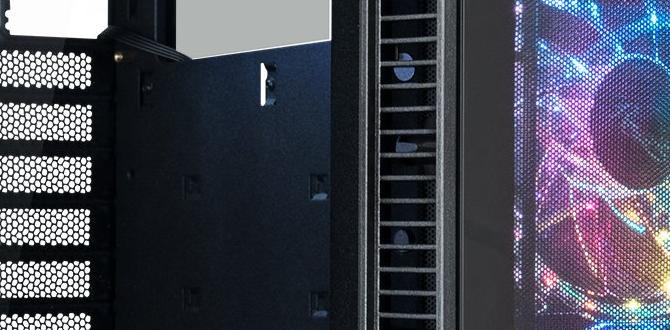When it comes to setting up a new computer system, the idea of using a gaming box as your main PC might have crossed your mind. Gaming boxes are typically known for their robust hardware and performance capabilities, making them an attractive option for power users and gamers alike. However, before making the switch, it’s essential to consider various factors such as compatibility, performance, connectivity, and cooling solutions to ensure the gaming box meets your requirements as a primary workstation.
Compatibility of Gaming Box as Main PC
Requirements for Functionality
Using a gaming box as your main PC requires assessing if it meets the necessary requirements for day-to-day tasks such as web browsing, multimedia consumption, and office productivity. Check if the hardware specifications align with your usage patterns to ensure smooth operation.
Operating System Support
Verify if the gaming box supports the operating system you intend to use as your primary platform. Some gaming boxes may have limitations in terms of OS compatibility, so it’s crucial to confirm this aspect before making a decision.
Performance Considerations
Processor and GPU Capabilities
The processing power and graphics capabilities of the gaming box play a significant role in its performance as a main PC. Ensure that the processor and GPU meet the demands of your daily computing tasks for a seamless experience.
Memory and Storage Requirements
Adequate memory (RAM) and storage are essential for multitasking and storing data. Evaluate if the gaming box offers sufficient memory and storage options to accommodate your needs as a primary workstation.
Connectivity and Expansion Options
Ports Availability
Check the available ports on the gaming box to connect peripherals such as monitors, external drives, and other accessories. Sufficient port availability ensures you can expand your setup without constraints.
Upgradability Potential
Assess the upgradability of the gaming box concerning components such as RAM, storage, and GPU. A system that allows for easy upgrades provides flexibility for future enhancements as your computing needs evolve.
Efficiency and Cooling Solutions
Power Consumption and Heat Management
Efficient power consumption and effective heat management are crucial for the long-term durability of a gaming box used as a main PC. Consider systems with energy-efficient components and reliable cooling solutions to prevent overheating.
Cooling Mechanisms for Prolonged Use
Continuous usage of a gaming box as your main PC may lead to increased heat generation. Look for cooling mechanisms such as fans, heat sinks, or liquid cooling to maintain optimal operating temperatures during prolonged computing sessions.
Conclusion
In conclusion, using a gaming box as your main PC can be a viable option if it meets your compatibility, performance, connectivity, and cooling requirements. Assessing these aspects carefully will help determine if the gaming box can serve as an efficient workstation for your daily computing needs.
FAQs
1. Can I upgrade the components of a gaming box to enhance its performance?
Yes, many gaming boxes allow for component upgrades such as RAM, storage, and GPU to improve performance over time.
2. Are gaming boxes suitable for professional tasks like video editing and graphic design?
Depending on the hardware specifications, gaming boxes can excel in handling resource-intensive tasks like video editing and graphic design.
3. How can I ensure optimal cooling for a gaming box used as a main PC?
Regularly clean the internals of the gaming box, ensure proper airflow, and consider additional cooling solutions like fans or liquid cooling to maintain optimal temperatures.
4. What factors should I consider when selecting a gaming box as my main PC?
Consider factors such as processor speed, GPU performance, memory capacity, storage options, connectivity ports, and upgrade potential when choosing a gaming box for primary use.
5. Can a gaming box replace a traditional desktop PC for everyday computing tasks?
With the right hardware configuration and operating system support, a gaming box can effectively replace a traditional desktop PC for everyday computing tasks and offer enhanced performance for gaming and multimedia applications.
